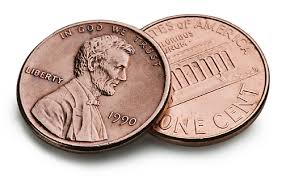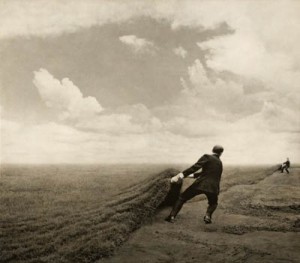 If your horse is of considerable value, or, if you value your horse considerably, you’ve probably thought about insuring him. Since people ask me about equine insurance all the time, and since I’ve had a good bit of experience it, so I thought that I’d give you my two cents.
If your horse is of considerable value, or, if you value your horse considerably, you’ve probably thought about insuring him. Since people ask me about equine insurance all the time, and since I’ve had a good bit of experience it, so I thought that I’d give you my two cents.
ETYMOLOGY NOTE: Did you know that the origin of the phrase, “Giving my two cents worth” – which is a reference to advice possibly not being of great value – may even by Biblical? CLICK HERE to read more. Who knew?
 Before you consider buying insurance, I think that you should spend a good amount of time thinking about the “Why?” question, that is, “Why do you want to buy insurance for your horse.” At the end of the day, I really think that there are only two reasons why you might want to make the purchase.
Before you consider buying insurance, I think that you should spend a good amount of time thinking about the “Why?” question, that is, “Why do you want to buy insurance for your horse.” At the end of the day, I really think that there are only two reasons why you might want to make the purchase.
1. You want to help cover your financial costs in case your horse has an accident, injury, or illness, and you’re worried about the cost of treatment.
2. You may want to get some money in case your horse dies, and you want to go out and buy another horse.
Believe it or not, those aren’t the only reasons that people buy insurance. In fact, there’s been a considerable amount of time spent by social scientists on this question of why people buy insurance, and there’s not one answer. Here are a couple of others.
 You may think that if you buy insurance, it will somehow prevent something bad from happening to your horse. Seriously. Here’s an example: flight insurance. Flight insurance is designed to give money to a passenger’s survivors or estate in case a plane crashes and the traveler is killed. Plane travel is among the safest things in the world, and accidents rarely happen on commercial airlines, but people still buy the policies. And, believe it or not, some studies have shown that one reason is that some people believe having insurance means the plane will stay aloft. Don’t be that person.
You may think that if you buy insurance, it will somehow prevent something bad from happening to your horse. Seriously. Here’s an example: flight insurance. Flight insurance is designed to give money to a passenger’s survivors or estate in case a plane crashes and the traveler is killed. Plane travel is among the safest things in the world, and accidents rarely happen on commercial airlines, but people still buy the policies. And, believe it or not, some studies have shown that one reason is that some people believe having insurance means the plane will stay aloft. Don’t be that person.
You also might buy insurance because you’re genetically predisposed to it. Seriously – the work was done by Richard Ebstein, a genetics professor at the Hebrew University of Jerusalem, and two National University of Singapore economists, Soo Hong Chew Songfa Zhong. If you’re predisposed to it, you’ll be more likely to buy insurance: period.
Superstition and genetics aside, mostly, I recommend that people choose to buy insurance for one or both of the first two reasons. That is, if you can afford to pay for a new horse if an unforeseen circumstance means that you lose your current horse, or you could shell out a good bit of money for a treatment without mortgaging your house, then you probably don’t need to buy insurance. Alternatively, if you wouldn’t pay for any expensive treatment (which doesn’t necessarily mean that you’re a bad person, you know), you probably don’t need insurance, either.
 Honestly, I think that most people would prefer not to buy insurance. They look at payments as a small but certain loss every year. But if losing your horse, of paying for a really expensive treatment would be a financial calamity, then insurance is probably not a bad idea. Of course, it would be even easier to make a decision about buying horse insurance if you knew what the odds were that any horse might have a problem. Then you might be able to reasonably think of insurance costs as a cost of protecting your horse, rather than just an annual loss. But that information is just not available.
Honestly, I think that most people would prefer not to buy insurance. They look at payments as a small but certain loss every year. But if losing your horse, of paying for a really expensive treatment would be a financial calamity, then insurance is probably not a bad idea. Of course, it would be even easier to make a decision about buying horse insurance if you knew what the odds were that any horse might have a problem. Then you might be able to reasonably think of insurance costs as a cost of protecting your horse, rather than just an annual loss. But that information is just not available.
One of the most interesting papers that I’ve read – and it was about the question of why people buy insurance for their farm crops – was published in 1989 by James Shanteau, a professor f psychology at Kansas State University. Even though the paper was on crop insurance, it has some pretty broad implications on the question of buying insurance for anything, including your horse. You can read it if you CLICK HERE.
Dr. Shanteau noted that there’s one other reason – one that’s a bit skewed, actually – that may prompt people to buy insurance. Apparently, many people tend to regard insurance in terms of an investment, not as protection. The reason for an insurance purchase in some people’s minds is, “Aimed at maximizing claim payments in case the hazard should occur,” that is, to make the most (money) out of a bad situation (for the horse). And, to a certain extent, that’s exactly what has happened in the equine insurance industry.
Otherwise stated, when it comes to mortality insurance, some people may buy it make money in case the horse dies (or gets killed). Of course, there are a few reasons not to do that, including (in no particular order), it’s wrong, and  it’s illegal. Even so, probably the most famous case of killing a horse for insurance money is thought to involve the great Thoroughbred racehorse Alydar, who many people think was killed in an effort to cover debts (CLICK HERE to read about it). And, keep in mind that if you insure your horse for way more than he’s worth, hoping to collect a windfall if he dies, you’ll have to justify how you came up with the value before the company pays out. Otherwise stated, if your horse dies, and you have a mortality policy, the company will pay you for what your horse is worth, but not a whole lot more.
it’s illegal. Even so, probably the most famous case of killing a horse for insurance money is thought to involve the great Thoroughbred racehorse Alydar, who many people think was killed in an effort to cover debts (CLICK HERE to read about it). And, keep in mind that if you insure your horse for way more than he’s worth, hoping to collect a windfall if he dies, you’ll have to justify how you came up with the value before the company pays out. Otherwise stated, if your horse dies, and you have a mortality policy, the company will pay you for what your horse is worth, but not a whole lot more.
On the treatment side of things, with an “insurance-as-investment” line of thinking, it’s a lot easier to consider using very expensive diagnostic techniques and treatments, even when they may not be necessary. After all, you paid for them, right? But that attitude is in the process of causing big changes in the equine insurance industry.
 When horse health insurance was first proposed, it was supposed to be a form of protection against catastrophe. At the time, the only really expensive treatments that were routinely performed were surgeries: for colic and such. Given that most other treatments weren’t very expensive, and there weren’t a lot of expensive machines to use, policies could be conceived that essentially had a defined benefit. You paid a bit of money based on the worth of your horse (usually about 4% of his declared value), and you also got a few thousand dollars thrown in in case your horse needed life-saving colic surgery. That was a really good deal for everyone.
When horse health insurance was first proposed, it was supposed to be a form of protection against catastrophe. At the time, the only really expensive treatments that were routinely performed were surgeries: for colic and such. Given that most other treatments weren’t very expensive, and there weren’t a lot of expensive machines to use, policies could be conceived that essentially had a defined benefit. You paid a bit of money based on the worth of your horse (usually about 4% of his declared value), and you also got a few thousand dollars thrown in in case your horse needed life-saving colic surgery. That was a really good deal for everyone.
But now, with the advent of diagnostic machines like MRI, CT scan, and even ultrasound, as well as treatments like stem cells and platelet-rich plasma and injections of myriad substances into myriad body parts, expensive procedures are being routinely asked for and recommended for conditions that aren’t at all catastrophic. And, if a horse is insured, some people may be inclined to use them because, well, they can. Others may be inclined to recommend them because they get paid for them. So, now, it’s possible to spend a lot of money on conditions that were previously treated with just some rest and rehabilitation, or even on conditions that can’t be treated very well at all (in hopes that they might “help”), without too much financial pain. For example, when a horse is insured, It’s possible to get a whole bunch of X-rays to evaluate a problem taken at a relatively nominal cost, and to then treat it with the latest (unproven) treatment, secure in the knowledge that it’s all been paid for. A “wait-and-see” attitude might be proposed for a horse without insurance, It’s all paid for, right?
 Paid for: right. But here’s the rub. As a result of people considering insurance is an investment, and as a result of equine insurance companies giving a nod to many treatments that have nominal value, equine insurance companies often lose money. One thing that you can be sure of; when it comes to losing money: companies aren’t going to put up with it for long.
Paid for: right. But here’s the rub. As a result of people considering insurance is an investment, and as a result of equine insurance companies giving a nod to many treatments that have nominal value, equine insurance companies often lose money. One thing that you can be sure of; when it comes to losing money: companies aren’t going to put up with it for long.
NOTE: I’m neither asking nor expecting anyone to feel sorry for insurance companies. I’m pretty confident that many people – including me – can recount problems with them. For example, the client who had her horse insurance cancelled because she actually had to use it. Or the client who couldn’t get an exclusion removed from his policy even though the exclusion was placed because of what was demonstrably a misdiagnosis.
As a result, the equine insurance industry keeps changing. After all is said and done, insurance companies are in business to make money (this is not a criticism – just a fact). You may find that you have to insure your horse for a good bit of money in order to get additional medical and surgical coverage. Or, you may find that you can buy a plan that only covers colic surgery, but nothing else. Or, you may find that if you want a policy that will pay for everything, the rates will be much higher. Something always have to give.
Bottom line is that when it comes to a decision about buying insurance, there are really only a couple of reasons why you should do it. If you can afford to buy another horse, or if you can – or don’t want to – afford an expensive treatment, there’s probably no reason to buy insurance for it. And as an investment? Not so much.
The simple fact is that most people who have horse insurance won’t ever use it. But even if you do buy insurance… well, the times, they are a changin’. And now you know some of the reasons why.







